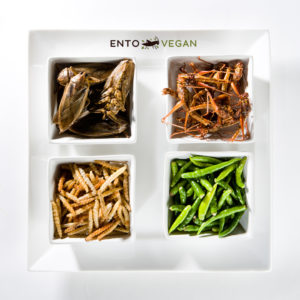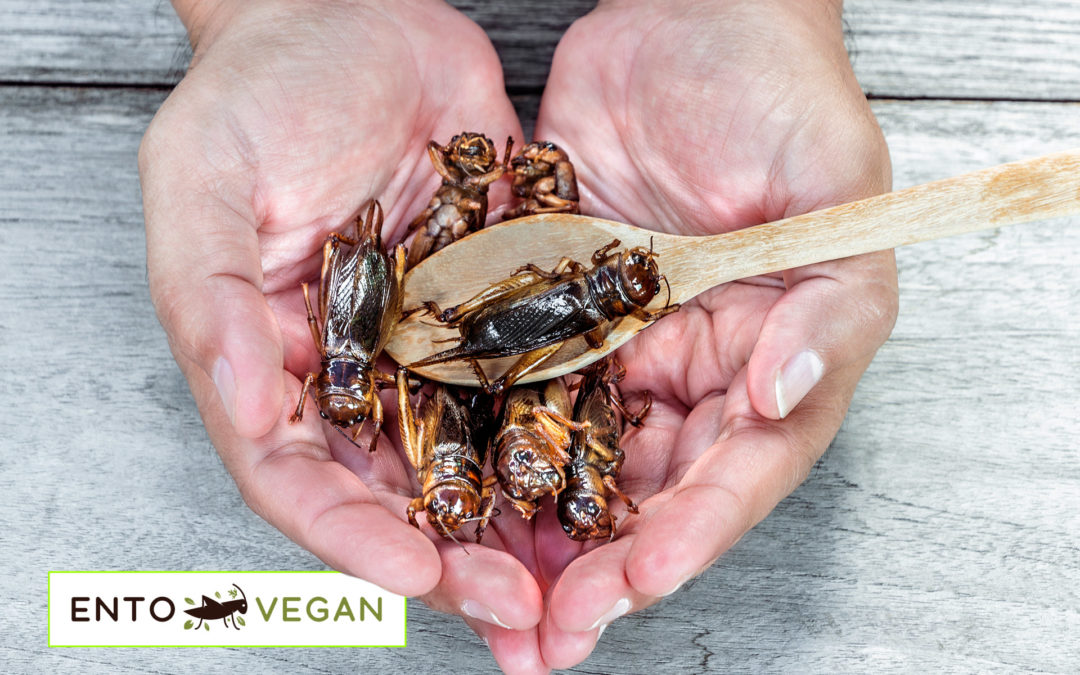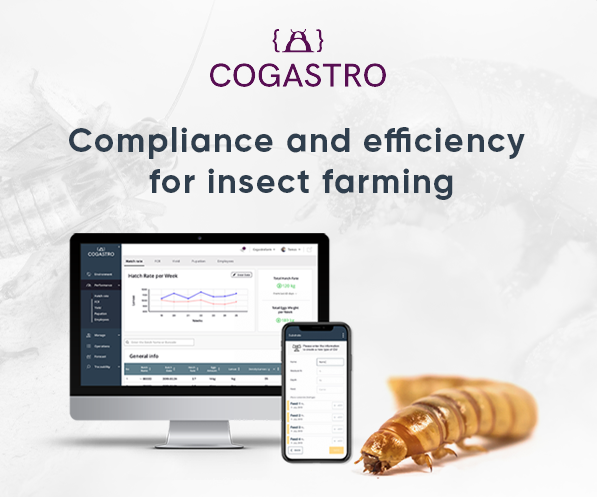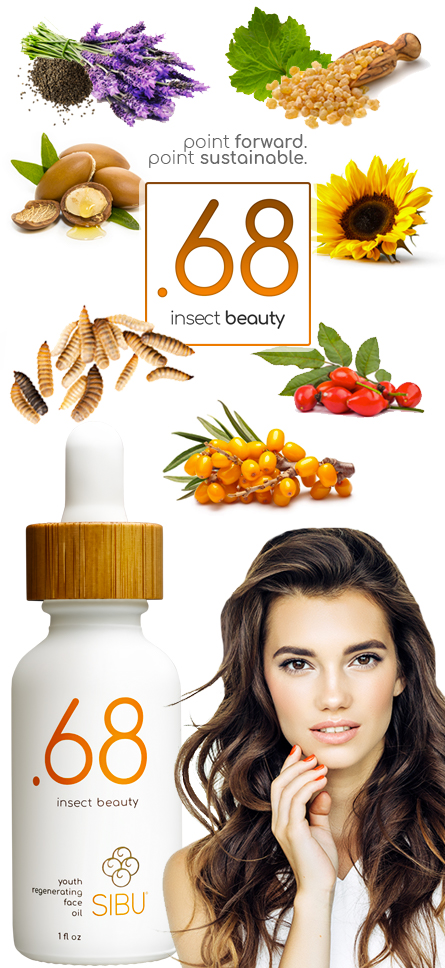One of the most exciting takeaways for me from Eating Insects Athens 2018 was the realization – even more clearly than before – that I’m not alone in terms of having a plant-based diet and embracing entomophagy.
As I’ve mentioned before, it’s been really surprising but awesome to hear from many people over the past year who also consider(ed) themselves vegan or vegetarian, but who are now embracing the addition of sustainable insect nutrition into their diet, and thus also picking up the label of Entovegan or Entotarian.
At the conference though, a couple things happened:
- I was a bit concerned about what the response would be to what I had to share. But I really felt it was what I needed to share, in the end, though I wasn’t sure how well it would be received, given that I was coming at things from what I imagined would be quite different from most of the presentations and businesses there. However, I was pleasantly surprised that most people received it very well and understood the spirit of where it was coming from, and it certainly kick-started a lot of positive, productive conversation.
- The shift from novelty to “this is actually a thing” is fully in motion, in terms of combining vegan / vegetarian / entomophagy. And through discussions with so many people each with their unique perspective on eating insects, veganism, sustainability, and more, I now have a much better grasp of the importance and potential that the idea of “entovegan” can have.
EMBRACING EDIBLE BUGS, WITHOUT EATING THEM
At the heart of it all is the idea that vegans can and should embrace sustainable insect farming and the eating of insects, regardless of whether they make the shift themselves to eat them, or if they simply support the move away from beef, chicken, pork, and fish.
When we step back and look at the whole big picture of what I consider the three main motivations for going plant-based:
- Personal health
- Environmental sustainability
- Combating animal cruelty
It becomes pretty clear that moving away from large-scale commercial meat, poultry, or fish farms and toward insect farming, is a definite step in the right direction.

And this is the concept that I’ve noticed has begun to really pick up steam, and is an idea I want to spend more time exploring and discussing with people.
The idea that, even for vegans who would never eat insects themselves because they draw a firm line between “plants” and “animals” of any kind, that they can still support the trend of entomophagy because anything that moves large numbers of meat-eaters away from meat, and towards something more sustainable and less cruel – along with healthier for the person – is a positive shift!
FARMING INSECTS VS OTHER ANIMAL AND PLANT PROTEINS
What has become really clear is that so long as the farming of insects continues to be done in an eco-friendly manner, then there is no comparison with any form of meat farming, even free-range / grass-fed. Insect farming is more sustainable and environmentally friendly, period.
By virtue of what is required to farm insects, also, and the conditions in which they reproduce best, along with the minuscule amount of water and feed required for their life cycle, and virtually no greenhouse gas emissions, one can make the case that farming insects is the most sustainable protein, whether plant or animal.
The appeal then to a rational vegan, is that there’s very little competition from either traditional meat protein sources or commercially farmed plant protein sources with the incredibly earth-friendly farming of insects. So even if a vegan wouldn’t choose to eat bugs themselves, there are clear reasons why it makes sense to champion the cause of cricket protein, for example, to all the rest of their non-vegan friends.
Combine the eco-friendly nature of the bugs, with their fully-lived life-cycle (which consists of the ideal conditions and food for their growth and reproduction), along with the solid human health benefits from insect nutrition, and then add in the benefits for insect farmers in the developing world both economically and nutritionally, and there’s really not much downside but a whole lot of upside!
THE BIG PICTURE NET POSITIVE
Of course, the sticking point for many vegans still is “it’s an animal“. Yet most people I’ve discussed this with over the past couple of years admit, if they’re being honest, that they haven’t given much thought to the welfare of “bugs”, and they agree there’s certainly a difference in complexity and sentience between a cow and a cricket.
So in the big picture, based on the ethos of “do the least harm possible”, the choice between crickets or cows is very straightforward: it’s more ethical, sustainable, and healthy for people and planet to farm and eat crickets, rather than beef (or chicken, pigs, fish, etc).
 And it’s here that vegans can champion the cause of eating insects, without actually eating them. Because the shift for most people from fully-fledged meat-eater to full-on vegan is a huge leap.
And it’s here that vegans can champion the cause of eating insects, without actually eating them. Because the shift for most people from fully-fledged meat-eater to full-on vegan is a huge leap.
But huge numbers of people are interested in eating better, being more healthy, and making conscious choices related to sustainability and positive human impact through the products that they buy.
For vegans who truly want to see a shift in societal norms toward more sustainability and animal-friendly food sources, a mass acceptance of insects as a valid food source is a definite step in the right direction.
Those with extreme dogma won’t see it that way, but honestly I’ve been pleasantly surprised in that I have encountered very few people who cling to veganism as if it were some sort of religion, rejecting outright everything that doesn’t fit within a narrow black and white worldview.
Nearly everyone I’ve talked to in person, anyway (online vegan forums are a different story) understands that we live in a world with shades of gray, and movement in the “right” direction is positive and should be at least accepted, if not supported and championed.
AN ENTOMOPHAGIST, A VEGAN, AND A VEGETARIAN WALK INTO A BAR…
And within 5 minutes they realize they’re actually all on the same team, fighting for the same positive end result!
Though their personal dietary choices are unique to each one, all three want to do their part to make the planet a better place – now and for future generations. All three believe in respecting other living things, and all three take pride in themselves and seek to nourish their bodies in the healthiest manner possible.
Achieving 100% agreement doesn’t have to be the goal – and in fact, that’s virtually impossible between two humans, period. But there is so much that lines up between people whose dietary consumption is plant-based, and people whose dietary consumption is plant-based + insects, that working together for the betterment of our planet should be an obvious choice.
At the heart of my message last week during Eating Insects Athens, and even more in-depth at the upcoming INSECTA conference (I’ll have double the time to present) are ways to position insects to appeal to plant-based eaters and those who don’t eat animals for purely ethical reasons.
The feedback has been really valuable, and I want to continue the discussion, examining different viewpoints and arguments and ideas. I didn’t expect that the idea of entovegan would be so readily embraced by both bug-eaters and plant-only-eaters, but it’s been inspiring and educational for me, and I want to continue learning and seeking solutions.
If you’re a vegan, vegetarian, or just have strong opinions on any of the themes represented in this discussion about veganism and edible insects, I would love to hear from you! Contact me here or on any of the Entovegan social accounts: instagram, twitter, facebook, youtube.
Do you think it makes sense for vegans to support the growing industry based on insects as a nutritious protein source? Why or why not?





